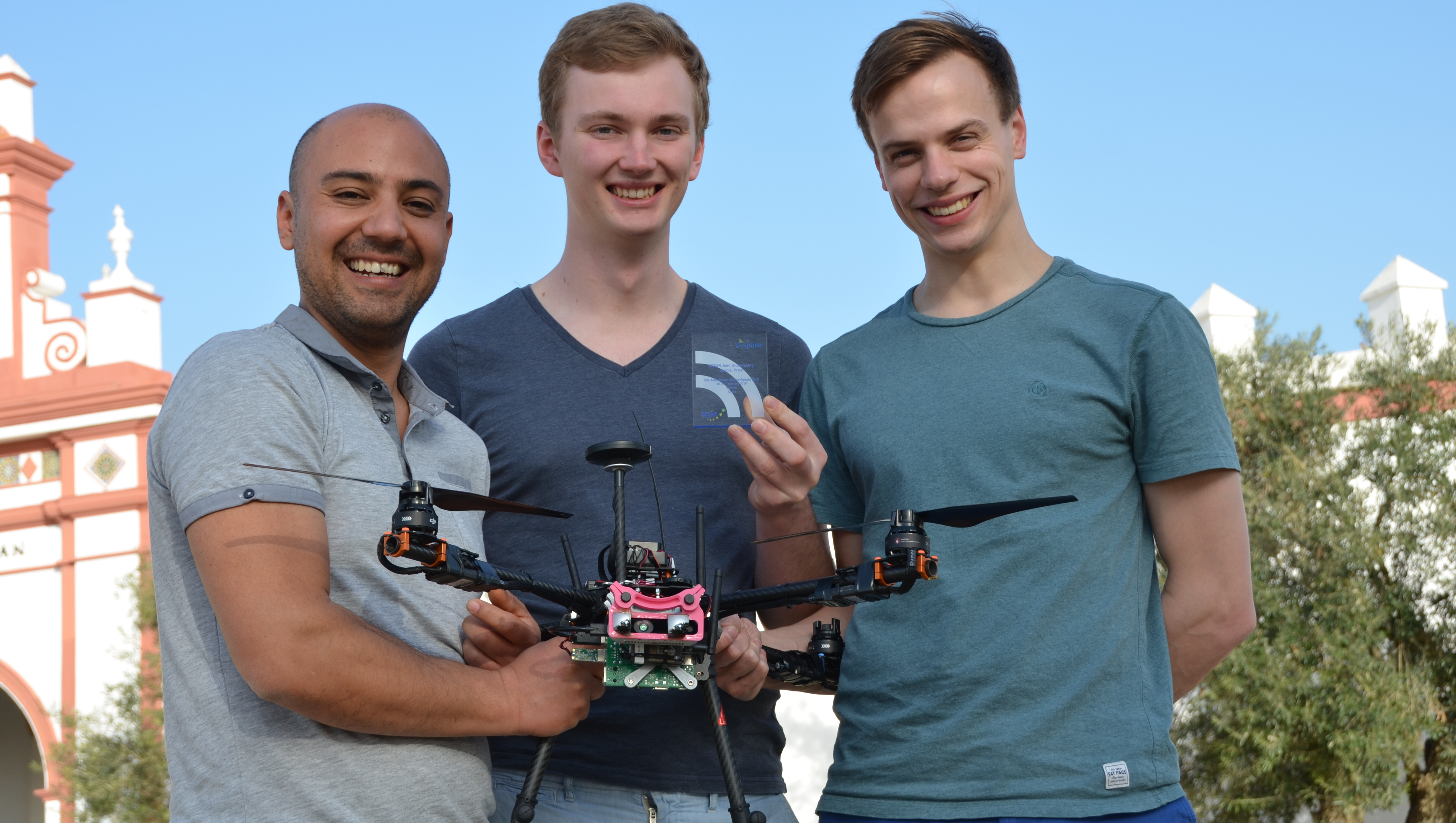The SESAR special prize is awarded to team which is recognised for technical innovations to ensure the safe access to airspace for drones or aerial robots.
Teams competing for the SESAR special prize were challenged to demonstrate their technology can enable high levels of autonomy in aerial robots. Each drone was required to pass across several waypoints without colliding against any obstacles and also detecting and avoiding non-cooperative drones, without any intervention from a human operator.
The more obstacles and non-cooperative drones the aerial robot detected and avoided, the more points each team received with the Bath students scoring the most points, and therefore scooping the prize.
Team Bath Drones, which is made up of a multidisciplinary group of students from the Aerospace, and Integrated Mechanical & Electrical Engineering (IMEE) degree programmes at Bath, competes annually at a number of international drone competitions.
This latest prize at the European Robotics League (ERL) - which took place at the Advanced Center for Aerospace Technologies (CATEC) in Seville, Spain - adds to success in previous years, with the team having won the Institution of Mechanical Engineers’ (IMechE) Unmanned Aircraft Systems (UAS) Challenge in 2017.
Team Bath Drones Project Leader Freddie Sherratt, said:
Entering the ERL was a fantastic experience with the SESAR prize capping off an extremely enjoyable week. This is the first time we’ve entered the ERL and despite having the smallest team we have once again proved our quality. I look forward to seeing how we can further improve our drone for the next event.
Senior Lecturer in Robotics and Autonomous Systems and Team Bath Drones Academic advisor, Dr Pejman Iravani, commented:
The SESAR challenge tries to address one of the main problems when integrating UAVs into shared airspace that of collision avoidance in a dynamic environment. Only by the development of advanced sense and avoid technologies will be possible to exploit the full potential of UAV for commercial applications.
At the University of Bath we are working towards this goal by developing planning algorithms that take into account risk to ground, infrastructure and other air users and combines this with real-time sensor data to minimise the potential of any damage.
The ERL is an innovative concept for robot competitions which stems from its predecessors, the euRathlon and RoCKIn competitions, and focuses on tasks that robots must execute in realistic environments. The ERL is composed of multiple Local Tournaments, held in different locations across Europe, and a few competitions as part of Major Tournaments.
Teams participate in a minimum of two tournaments (Local and/or Major) per year and get scores based on their performances. Scores of the best two participations in tournaments for each team are added and teams are ranked based on their cumulative score.

